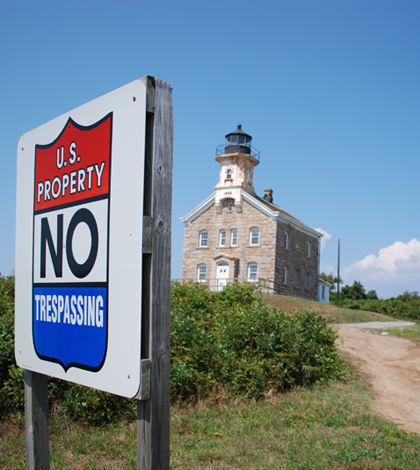Plum Island Lab in Limbo After Replacement’s Debut

A new $1.25 billion deadly animal disease laboratory that opened last month in Kansas after a decade of delays has the lab that it replaced on Plum Island planning to wind down operations.
The National Bio and Agro-Defense Facility is not expected to begin working on biohazards for more than a year, officials said. Until then, staff will conduct regulatory work, prepare protocols and train before working with any pathogens, The Topeka Capital-Journal reported.
“They will check all the systems according to the international standards and national standards,” NBAF director Alfonso Clavijo said. “And only after we have that approval will we be able to actually do any work. We expect that by late 2024, we should be able to have that approval.”
The facility will be the nation’s only large-animal biosafety Level 4 lab, which means it will be able to handle pathogens that do not currently have treatments or countermeasures. It is unclear when pathogens used in research will be moved from Plum Island to Kansas, spokesperson Katie Pawlosky said. No animals or equipment will be transferred. The Department of Agriculture and the Department of Homeland Security (DHS) are preparing for the trasnsition.
“Full decommissioning of the Plum Island facility will start (around December 2024) and is currently estimated to be completed in late 2028,” DHS spokesman John S. Verrico told Dan’s Papers.
DHS credits the need to move nearly 400 LI jobs to anti-virus NIMBYism, planned academic synergy at Kansas State University’s nearby Biosecurity Research Institute and the fact that Plum Island’s foreign livestock disease testing facility requires samples be airlifted from America’s agricultural heartland. Modern labs nullified the remote island security strategy — requiring in severe cases that animals be rushed in by helicopter — although doubts persist about the wisdom of building such a lab in tornado alley, despite protections.
Once the Plum Island lab is phased out, what will become of the island is also an open question, although federal law does prohibit it from being auctioned off. The proposed Plum Island National Monument Act aims to permanently protect the 843-acre island and local officials are asking President Joe Biden to designate the island as a national monument under the Antiquities Act.
“Plum Island is an important and unique ecosystem that serves as a critical habitat for rare species and provides essential resources to nearby communities,” said U.S. Rep. Nick LaLota (R-Rocky Point). “It is our responsibility to ensure that the unique ecosystem and cultural heritage of Plum Island is protected and preserved for future generations.”
-With Associated Press



